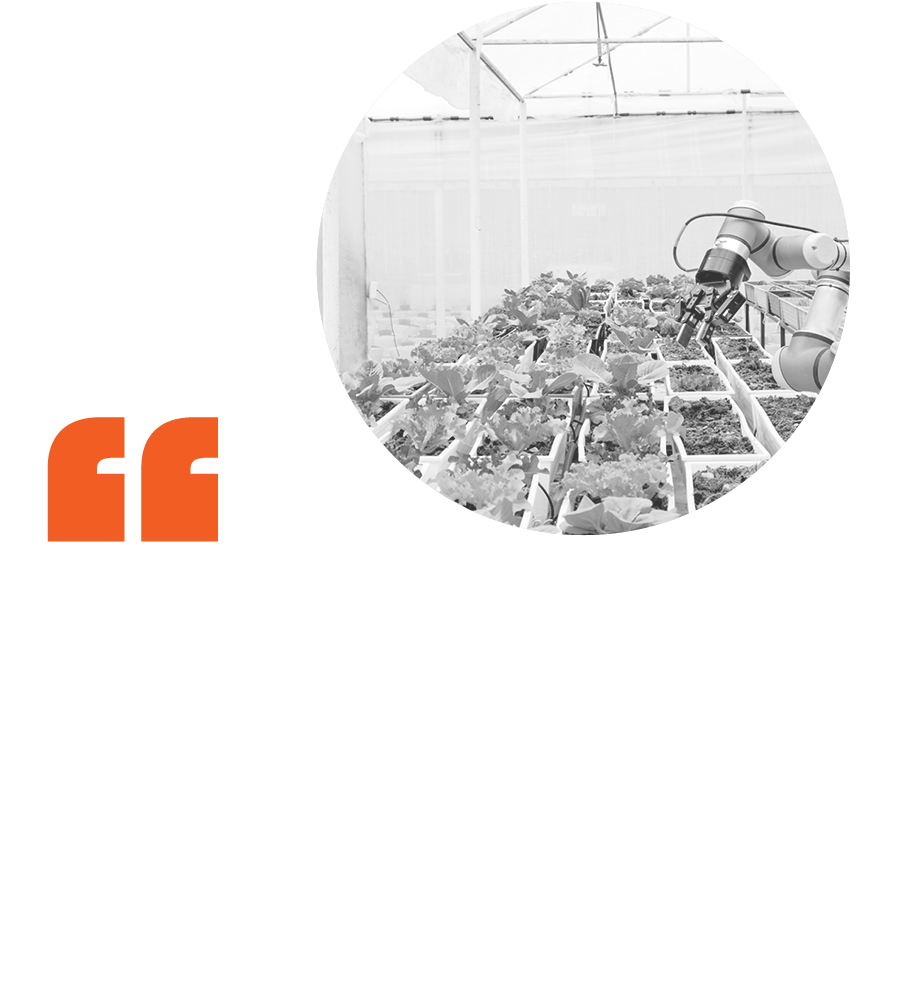
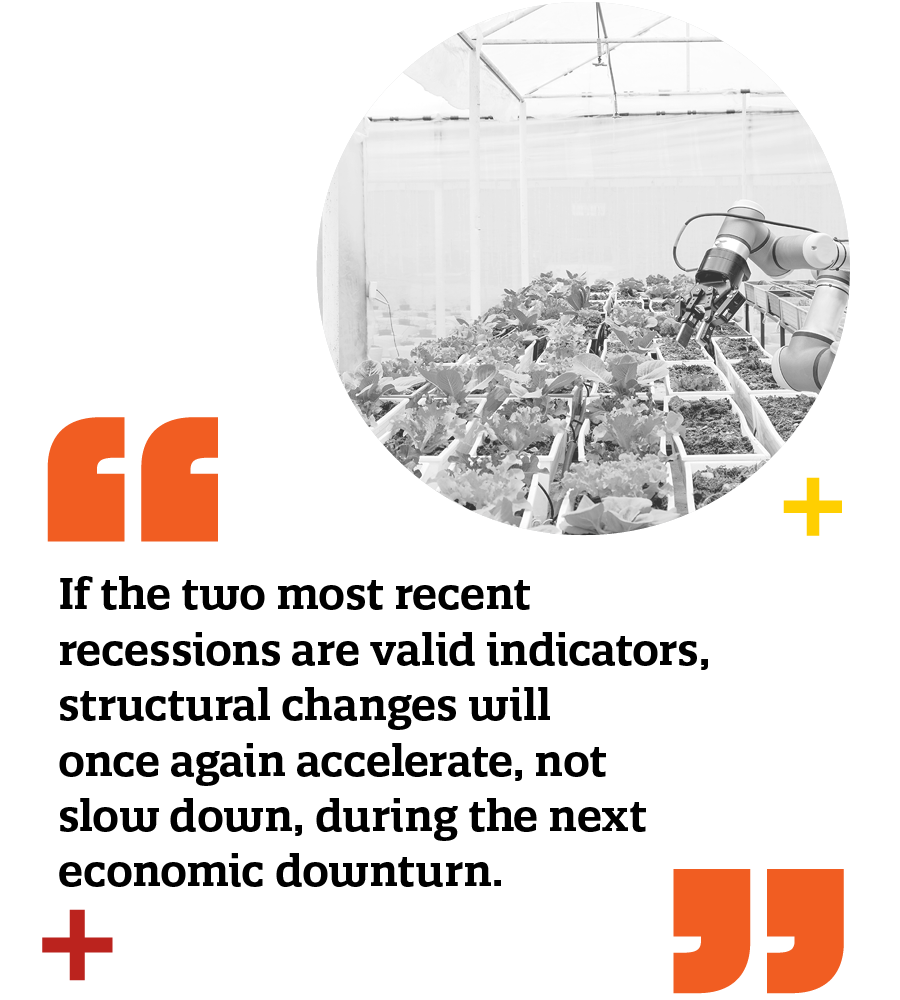
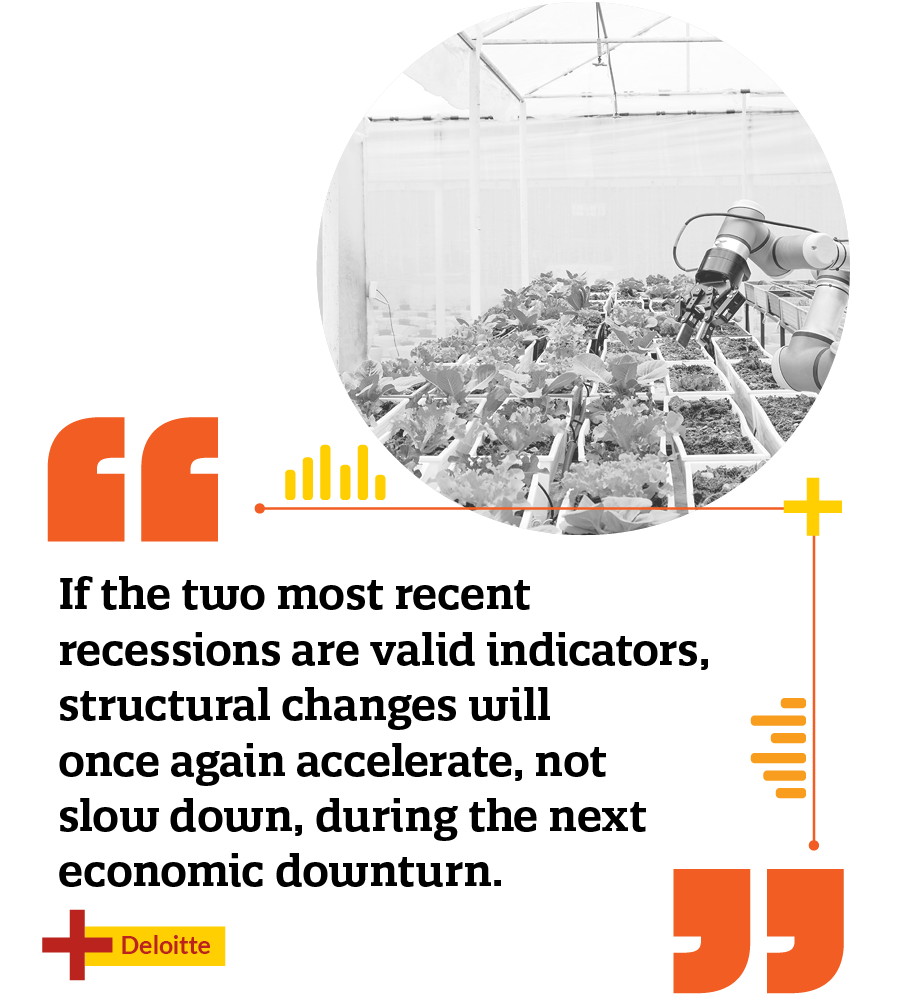
The response to COVID-19 will change people’s spending habits, use of digital channels, and have wide ranging impacts on the fresh produce supply chain. Existing trends towards mindful eating, internet shopping, and the digitisation of the supply chain, may continue but at an even greater pace.
Automation, smart software and artificial intelligence offer substantial opportunities for fresh produce businesses. The benefits of new technologies will be captured by those businesses that are capable of a successful deep implementation of good technology underpinned by high quality data.
A successful ERP strategy is the robust foundation for automation and smart software that can provide real competitive advantage and allow businesses to survive and respond to future disruption.
A recent report on disruption in fruit and vegetable distribution said “This changing world of fresh fruit and vegetables presents both an opportunity and a threat. For those that are successful in responding to new technology, engaging with it so their business enters new channels and new niches, the upside is strong. But this opportunity also comes hand-in-hand with a challenge: these changes are accompanied by ever increasing customer demands, requiring producers and suppliers to respond ever more quickly”.
The fresh produce market has radically changed over the last decade and it seems reasonable to expect that disruption and structural changes will continue to be felt throughout the supply chain. The impact of discounter chains, new entrants to the market such as Amazon, and changing consumer habits, will continue to put pressure on fresh produce margins.
There are signs of structural shifts in the fresh produce market. As of May 2020, Ocado’s technology licensing deals with major UK and US grocers had catapulted its value to £15 billion – which is equivalent of the value of Sainsbury’s, Morrisons and Marks & Spencer combined.
The Guardian was quick to spot the dramatic shift this might represent; “The big money in the food retail business, it turns out, lies not in selling groceries to shoppers, but in selling robots and clever delivery technology to grocers”.

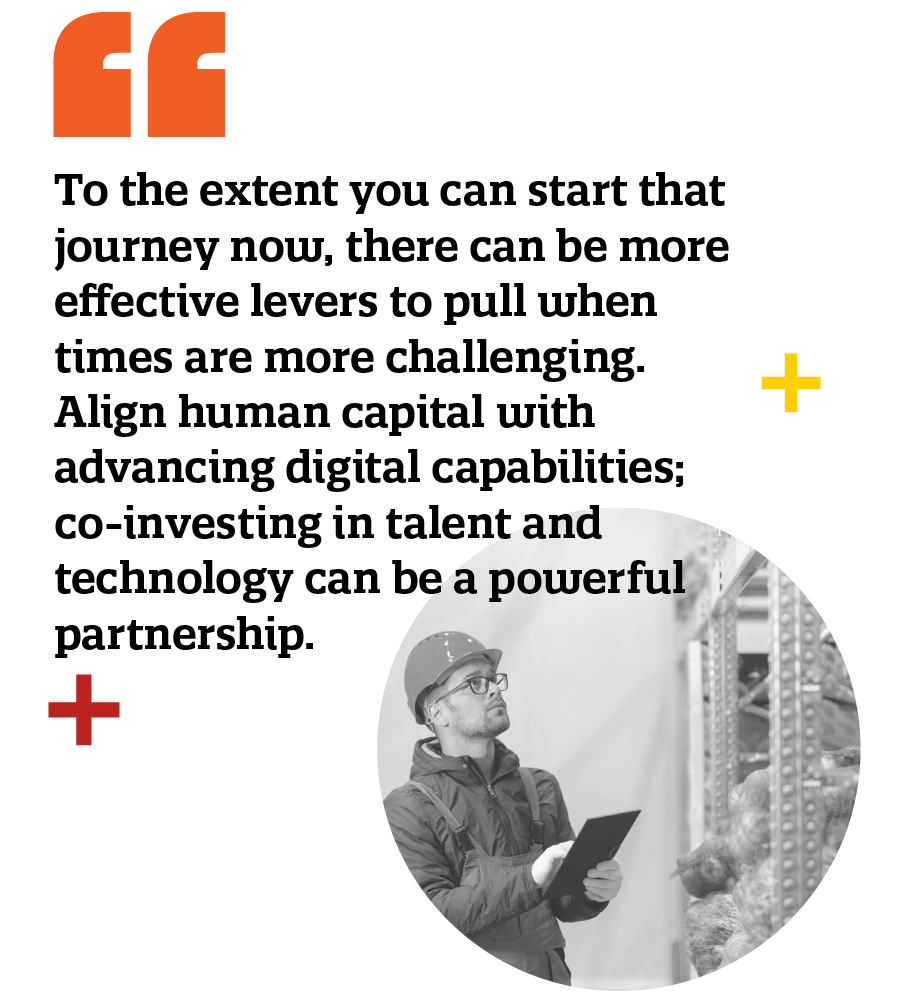
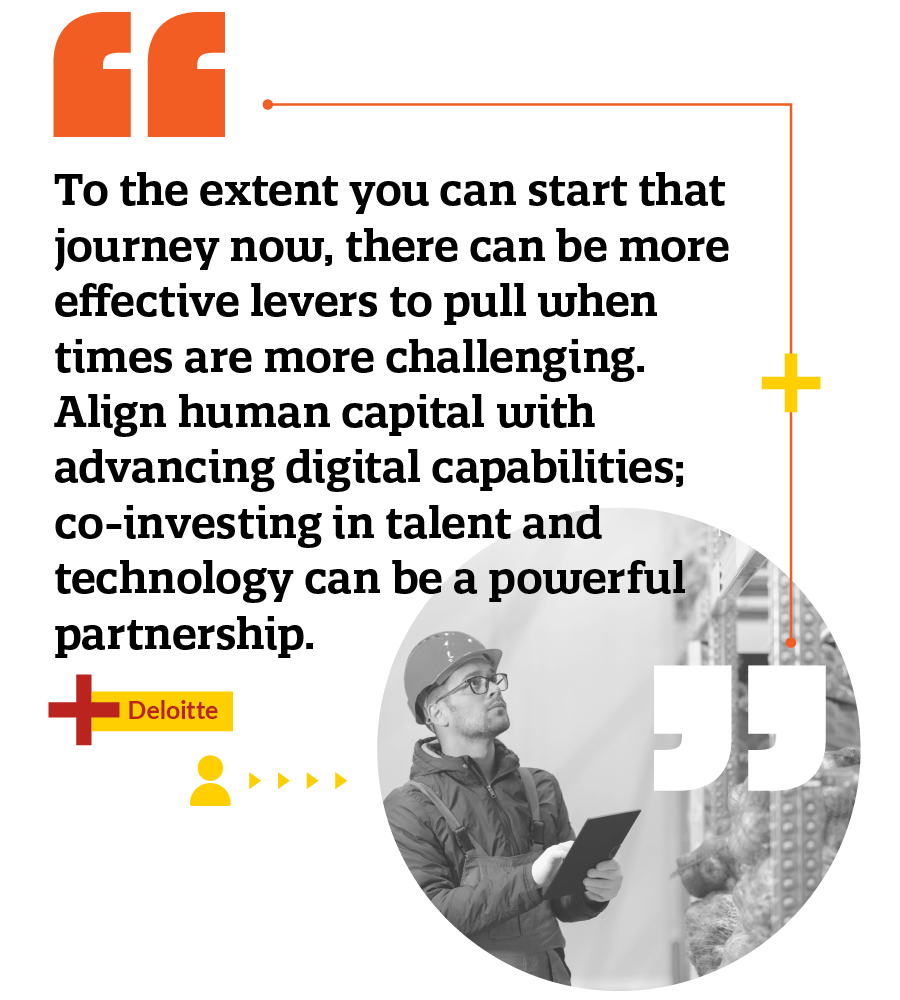
Changing investment behaviour may also sit alongside the changing requirements placed upon food growers. Investment decisions may increasingly be made based on how successfully fresh produce organisations have deeply integrated data processing, data exchange and smart software.
The food retail buyers of the future may demand real-time data on the quality and timeliness of fresh produce as an essential requirement before making investment decisions. The inability to accurately provide pallet level data may be a barrier to securing orders and meeting enhanced consumer demands.
A recent Oliver Wyman report is adamant that this change is already upon us and the expectations of fresh produce companies are only going to increase: “What will change, though, are the requirements it places on growers and suppliers as new best practices emerge…while maintaining clean product master data may today be sufficient for growers and suppliers to qualify as potential suppliers (from a data integrity perspective), tomorrow the requirement may shift to the real-time exchange of a broad range of transaction data, including attributes that allow for full traceability”.
Fresh produce companies need to invest to meet the demands of the future; there is a need for a solid foundation of quality data, smart software, and a strong holistic understanding of all the risks and uncertainties present in the supply chain.